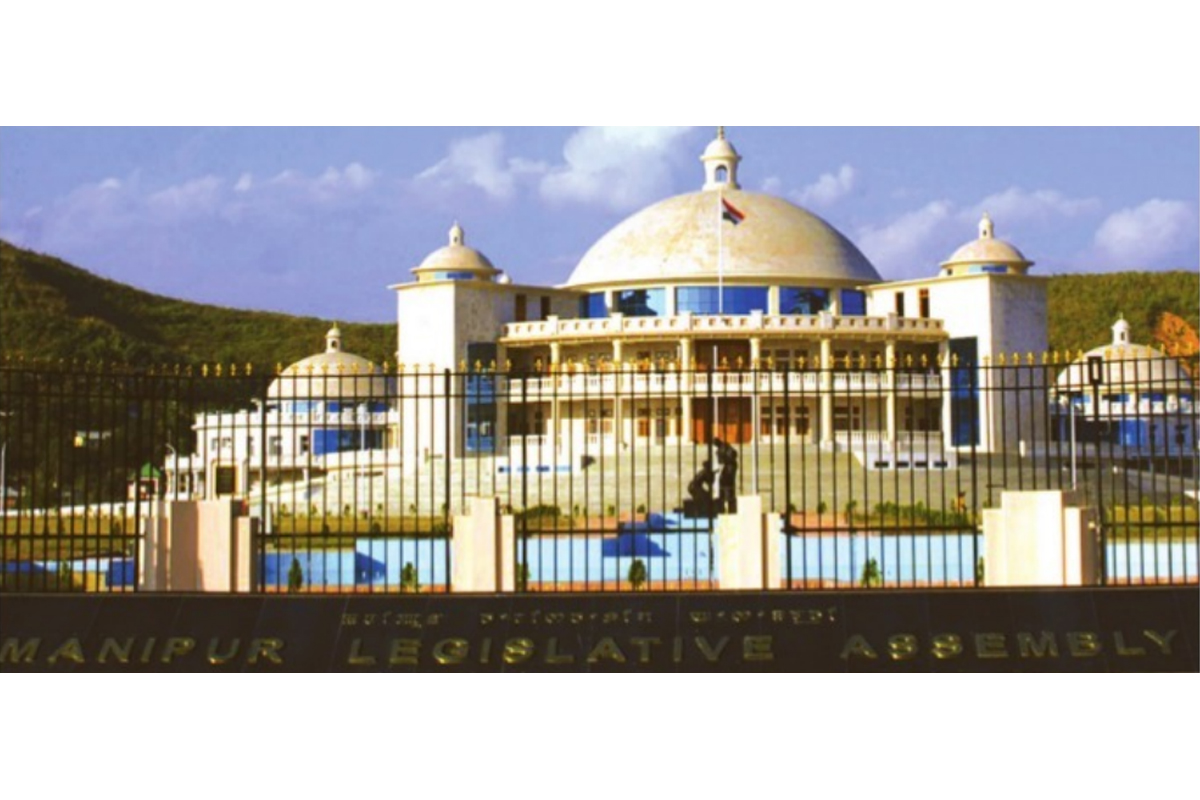On 12 June, the Government of Manipur put on hold all recruitment processes in its various departments and undertakings. This notice came after the Reserve Bank of India instructed the State Bank of India to stop payments as the state government had overdrawn an excess of more than Rs 274 crore.
This is the second time in two decades that the Manipur government halted any recruitment process in the state. In 1999, the Wahengbam Nipamacha Singh-led Manipur State Congress Party government came out with a similar notification after facing a severe liquidity crunch. The government fell in February the next year. It was only after almost a decade in 2008 that the ban on recruitment was lifted and various vacancies began to be filled.
Advertisement
Located at the strategic borderland, Manipur is largely a hilly state. The difficult geography and economic bottlenecks have led to its inclusion into the list of special category states. Under this, it receives 90 per cent of its plan expenditure as grants from the central government and the remaining 10 per cent as funding. Despite such huge central assistance, the state government is often unable to make ends meet.
Among India’s troubled states, Manipur has arguably the largest number of militant groups operating in its territory. The little entrepreneurial activities and small scale industries died out due to frequent interference from militant groups coupled with misgovernance. In the absence of industries, the state government is seen as the main provider of employment. In the rush to secure jobs at the various departments and undertakings of the state government, bribery of public officials and politicians has become rampant. Currently, the government has more than 80,000 employees on its payrolls. A huge amount is spent from the exchequer to pay the salary of employees.
In the absence of adequate employment opportunities, many educated young people move out of Manipur in search of jobs. Of those that can’t, some engage in the production and trading of illegal substances. Public infrastructure such as roads and buildings are constructed with inferior quality materials while some even exist only on paper. Thus, decades of insurgency and widespread corruption have resulted in infrastructural backwardness and the growth of a black economy.
Normalising bad governance
When the Bharatiya Janata Party came to power in Manipur in March 2017, there were high expectations that the system of governance would turn a new leaf. Indeed, the new government resolved to fight rampant corruption, generate employment, bring about good governance and restore normalcy. Within a week of capturing power, the government launched an “anti-corruption cell” and 400 complaints were received in that week itself. It also launched populist policies such as “Go to the Hills”, which was succeeded by “Go to Village” to reach the rural masses. The government also attempted to revive its schools through the imposition of certain regulations on its employees, which did not even take off. Except a few colleges in Imphal, the higher educational institutions run by the state government are mostly “degree giving” institutions without regular classes.
There are thousands of people on the payroll of the state government but do not attend work. No action can be initiated on such absenteeism as many of them are shielded by their relatives, who often happen to be influential politicians and bureaucrats, or even insurgent leaders. Even the top performing departments of the state work for only a few hours in a day.
Any intervention on this non-performance of public servants will be fought back through an alliance of different networks. The networks are so powerful and entrenched in the system that even in a deeply-divided society like Manipur, such networks go beyond ethnicity in order to maintain the status quo.
The enthusiasm of the N Biren Singh-led government to bring about good governance lasted barely two years, and gradually everything reverted to the previous state of affairs. Notwithstanding the huge complaints of corruption, few investigations and convictions happened.
Manipur suffers from severe revenue leakage. There is no accountability of taxes collected from tolls, forest produce and other areas. Power theft is all pervading. With the abject failure of the state government in revenue collection, there is a perpetual state of dependency without any future plans to improve revenue generation. Indeed, the state government has already failed to transform the prevalent system, and tackle corruption, which is deeply rooted and is the most arduous task to be performed. People have accepted bad governance for decades and that has become the norm. The severe liquidity crunch primarily stems, not from a lack of funds, but from failure of governance in the state.
Early settlement needed
While the financial exigency resulted in immediate austerity measures, in the form of a ban on all recruitments, political measures also followed. To closely monitor the financial affairs of the state, Chief Minister N Biren Singh took over key portfolios such as finance, public works and power from two senior cabinet ministers. The transfer of important portfolios by the Chief Minister is being seen as an authoritarian move. Th Biswajit Singh, from whom the public works and power portfolios were removed, claims to have the support of 17 MLAs and demanded the removal of N Biren Singh from the post of Chief Minister.
On the other hand, Deputy Chief Minister Joykumar Singh had been stripped of the finance portfolio, and his National People’s Party, a coalition partner of the BJP, is seriously concerned about the political situation.
What is urgently needed is a joint effort by those in positions of responsibility in the government to bail out the state from the current financial and political crisis. The need to settle the state’s liquidity crunch should come before any ambitions for greater political power. The long-term goal should focus on bringing about good governance and measures to tackle revenue leakage in Manipur.
The writer is assistant professor at the Centre for the Study of Law and Governance, Jawaharlal Nehru University, New Delhi.











